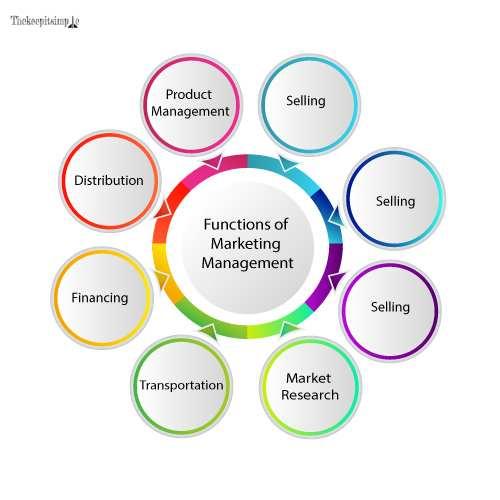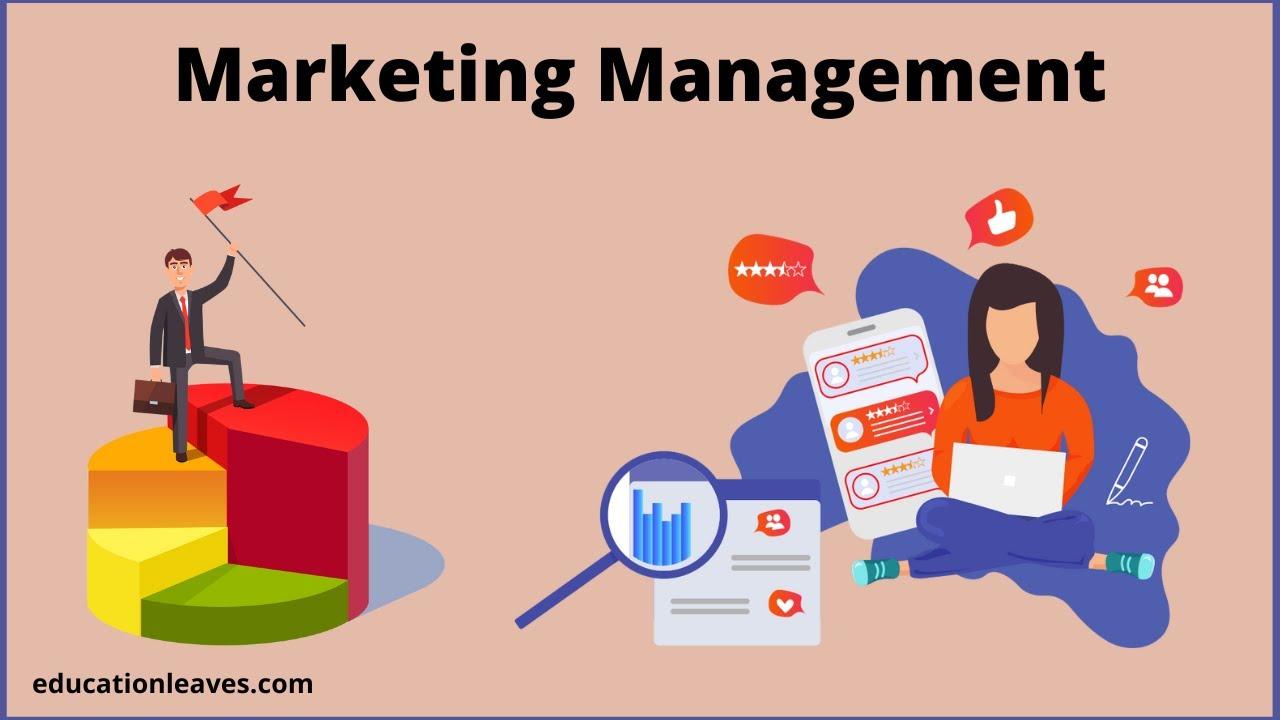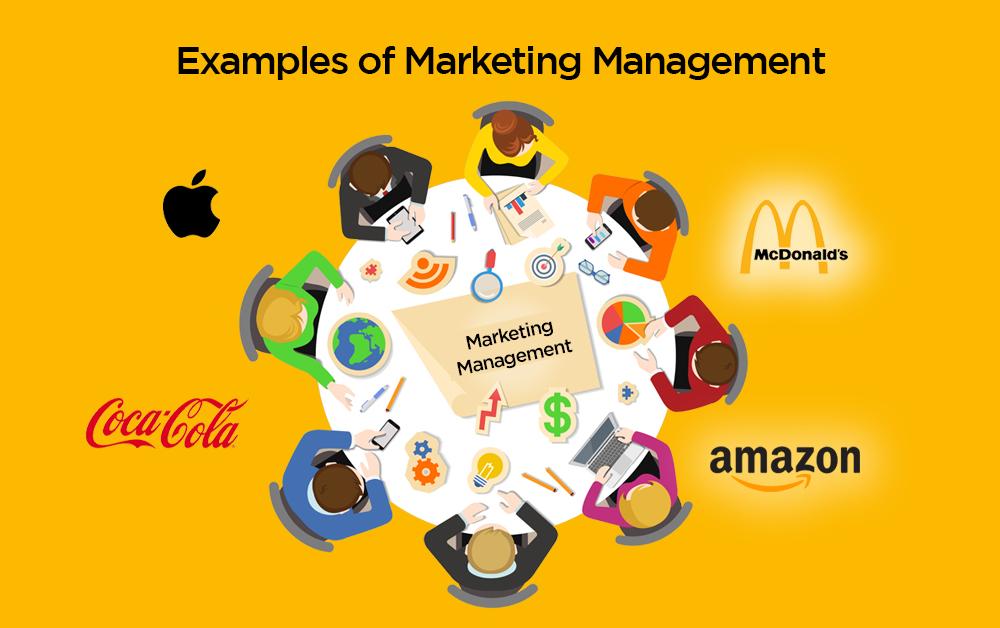Welcome too our latest blog post where we delve into the intriguing world of marketing management! In today’s discussion, inspired by the insightful YouTube video titled “,” we’re excited to explore the key themes and strategies surrounding effective marketing management.Whether you’re a student preparing for your exit exams or a professional looking to refresh your knowledge, this post will unravel essential concepts, tips, and answers to common questions. Get ready to enhance your understanding of marketing management as we share valuable insights that will equip you for success in both academic and real-world scenarios. Join us as we dissect the vital elements that every aspiring marketer should grasp!
Table of Contents
- Understanding Core Concepts in Marketing Management
- Analyzing Common Exit Exam Challenges
- Effective Study Strategies for Marketing Success
- Applying Insights to Real-World Marketing Scenarios
- Q&A
- To Conclude
Understanding Core Concepts in Marketing Management

In the realm of marketing management,grasping the core concepts is essential for success in any exit exam. A comprehensive understanding of target market identification,brand positioning,and marketing mix elements—product,price,place,and promotion—can make a critically important difference in your performance. Candidates should familiarize themselves with how thes concepts interconnect to craft effective marketing strategies. For instance, identifying a specific target market is crucial for tailoring your product offerings and promotional messages, ensuring they resonate with the intended audience.
Moreover, diving deeper into the principles of consumer behavior can provide valuable insights into decision-making processes, enabling marketers to develop more effective campaigns. Key aspects to consider include:
- Psychological influences like perception and motivation
- Cultural factors that affect buying habits
- Social influences, such as family and peer groups
To synthesize these concepts, it may be helpful to utilize a
| Core Concept | Importance |
|---|---|
| Target Market | Focuses marketing strategy for specific demographics |
| Marketing Mix | Defines how to deliver value to customers |
| Consumer Behavior | Informs how to engage and retain customers |
.Mastering these fundamentals will arm you with the required knowledge to navigate the complexities of marketing management and achieve stellar results.
Analyzing Common Exit Exam Challenges

One of the primary hurdles students face when preparing for their marketing management exit exams is the complexity of the questions. Frequently enough,these questions are structured to test not only theoretical knowledge but also practical applications of marketing concepts. Students frequently report feeling overwhelmed by the need to apply frameworks like the 4 Ps (Product, Price, Place, Promotion) in real-world scenarios, which can led to confusion and anxiety. To navigate this challenge, it is essential to adopt a strategic study plan that focuses on integrating concepts with practical examples, ensuring clarity and confidence during the exam.
Another common challenge lies in the time management aspect of the exit exam. Students frequently enough find themselves under pressure to complete the entire exam within a limited timeframe, which can lead to rushed answers and mistakes.A practical approach to overcome this issue is to practice with timed mock exams that simulate the actual testing conditions. By developing a better sense of timing and prioritizing questions based on difficulty, students can enhance their performance. Hear’s a simple table illustrating effective time allocation strategies:
| Section | Recommended Time | Focus Areas |
|---|---|---|
| Multiple Choice | 30 minutes | Conceptual clarity & recall |
| Case Studies | 45 minutes | Request of theories |
| Essay Questions | 45 minutes | Structure and argumentation |
Effective Study Strategies for Marketing Success

Embracing a variety of study strategies can considerably enhance your understanding of marketing management concepts. To begin with, active learning can be a game-changer; this could involve engaging in discussions, teaching concepts to peers, or applying theoretical knowledge to practical scenarios. Additionally,visual aids such as mind maps and infographics can help in organizing complex information,making it easier to digest and recall during exams. Make sure to leverage online resources, including webinars and podcasts, for diverse perspectives on marketing strategies and practices.
Incorporating a structured study timetable can accelerate retention and understanding. This can include dedicated blocks for different marketing concepts,offering a holistic insight into the subject. Here’s a simple table that highlights effective study methods along with their benefits:
| Study Method | Benefits |
|---|---|
| Active learning | Enhances understanding through engagement. |
| Visual Aids | Makes complex information easier to grasp. |
| Structured Timetable | Improves retention and organized study. |
| Peer Discussions | Offers diverse viewpoints and reinforces learning. |
Applying Insights to Real-World Marketing Scenarios
In the dynamic landscape of modern marketing, applying theoretical insights to practical scenarios is essential for success. Marketers often find themselves navigating a myriad of challenges, from shifting consumer behaviors to the effective allocation of resources. To tackle these challenges, understanding fundamental concepts such as market segmentation, targeting, and positioning is critical. Utilizing data analytics tools enables marketing managers to gain valuable insights into customer preferences and behaviors,allowing them to tailor strategies that resonate with their audiences. By adopting an agile marketing approach, teams can quickly iterate on campaigns based on real-time feedback, enhancing engagement and ROI.
Moreover, effectively integrating digital marketing with conventional methods can create a robust marketing strategy. Marketers can leverage platforms like social media and email marketing to drive brand awareness while simultaneously utilizing print or in-person events for deeper engagement. Consider the following strategies and their potential impacts:
| Strategy | Impact |
|---|---|
| Content Marketing | Builds trust and authority |
| search Engine optimization (SEO) | Increases visibility and traffic |
| Email Campaigns | Improves customer retention |
| Social Media Engagement | Fosters community and loyalty |
By effectively blending these strategies, marketers can optimize their performance and achieve sustainable growth. Ultimately, the key lies in the ability to understand when and how to apply these insights, ensuring that every marketing decision is data-driven and aligned with overarching business objectives.
Q&A
Blog Post Q&A:
Q1: What is the focus of the YouTube video titled “”?
A1: The video delves into essential topics surrounding marketing management, specifically focusing on the exit exam. It provides viewers with valuable insights into the types of questions that may appear on the exam and discusses strategies for mastering key concepts in marketing management.
Q2: Why is understanding the exit exam in marketing management significant for students?
A2: Understanding the exit exam is crucial for students in marketing management programs as it serves as a capstone assessment. It helps them evaluate their grasp of the subject matter, ensuring they are well-prepared to enter the workforce. Moreover, having insight into potential exam questions can boost their confidence and improve their performance.
Q3: What types of questions can students expect on the marketing management exit exam?
A3: The video outlines various question types that students might encounter, ranging from theoretical concepts to practical applications. These could include case studies, multiple-choice questions, and scenario-based inquiries that test the students’ ability to apply marketing principles in real-world situations.
Q4: Can you share any specific strategies mentioned in the video for preparing for the exit exam?
A4: The video emphasizes several effective strategies for exam preparation, such as creating a study schedule, engaging in group discussions, and utilizing practice exams.Additionally, it encourages students to review core marketing theories and frameworks thoroughly to ensure a comprehensive understanding of the subject.
Q5: did the video touch upon any common pitfalls that students should avoid during their preparation?
A5: Yes,the video highlights common pitfalls such as procrastination and underestimating the breadth of the material covered.It advises students to prioritize their study time efficiently and to seek help when needed to avoid cramming and last-minute stress.
Q6: How can viewers get the most out of the insights shared in the video?
A6: Viewers are encouraged to actively engage with the content by taking notes, forming study groups, and discussing concepts with peers.furthermore, applying the insights to practical scenarios can enhance understanding and retention of the material.
Q7: Is there anything else the video suggests for ongoing success in marketing management beyond the exit exam?
A7: Absolutely! Beyond the exit exam,the video suggests that students should view learning as a continuous journey. Keeping up with market trends, networking with professionals in the field, and pursuing further education can significantly increase their expertise and career prospects in marketing management.
Q8: Where can viewers access the YouTube video for deeper insights?
A8: The comprehensive discussion can be found on YouTube under the title “.” It is indeed recommended to watch it multiple times for a complete understanding, and also to follow any provided links for additional resources and study materials.
—
This Q&A aims to encapsulate key learnings from the YouTube video while providing readers with actionable insights for their study of marketing management.
To Conclude
As we wrap up our exploration of “,” it’s clear that understanding the core principles of marketing management is vital for both academic success and real-world application. Our discussion delved into the nuances of exit exam questions, providing valuable insights that can significantly enhance your preparation and confidence.
From dissecting the critical themes that frequently enough appear on these assessments to exploring effective strategies for tackling complex inquiries, we’ve equipped you with the tools you need to navigate the challenges ahead. Remember,mastering marketing isn’t just about passing an exam; it’s about harnessing these insights to propel your career forward and make informed decisions that resonate in today’s dynamic market landscape.
We hope this overview inspires you to embrace the learning process and apply these concepts, whether you’re studying for an exam or stepping into the professional arena. Stay curious, keep practicing, and don’t shy away from seeking out further knowledge. Until next time, happy marketing!



